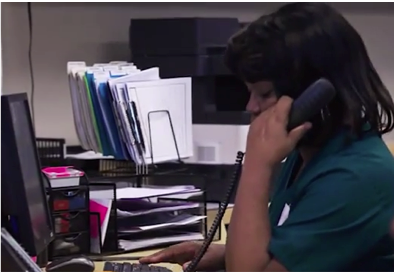So, you’re considering joining the healthcare profession as a medical biller and coder? Considering the fact that you can train to pursue your new career in less time than you may think… it’s not too surprising!
A career as a certified medical biller and coder certainly offers the opportunity to support people in need while benefiting from promising job prospects and flexibility. However, you’re probably curious about the essential skills and qualities that can help you excel in the role, right?
While the technical elements of medical billing and coding can be learned, it’s the soft skills and personality traits that can propel you towards a thriving career in this field. So, join us as we explore the 7 qualities you can master to ensure a successful career as a medical billing and coding specialist.
1. Good communication skills
One of the most appealing aspects of being a certified medical biller and coder is the variety of industry professionals and colleagues you can interact with. This may include not only doctors and nurses, but also medical supply company representatives and insurance representatives.
As a result, the role of a medical biller will often draw upon your skills to communicate important information accurately and, in time-sensitive scenarios, keep a calm and courteous demeanor throughout these interactions.
2. Be analytical & a great problem solver
As a medical biller and coder, you’ll be involved in most stages of the process, drawing upon your skills of applying critical thinking and analyzing individual situations. Accurate medical coding is about efficiently interpreting information before connecting it through the relevant medical billing software using current procedural terminology (CPT) codes.
Additionally, should an insurance claim be denied, your skills in identifying any issues can help fast-track a solution by correcting the relevant medical billing codes.
3. Adapting to fast-paced environments
As a medical biller and coder, you’ll often have your diary already planned out with your scheduled activities. However, due to the fast-paced nature of the healthcare industry, cases may occasionally be flagged as urgent, which requires immediate attention.
For instance, as a medical coder, you may suddenly need to correct an urgent CPT code for a medical procedure to prevent any patient treatment delays.
4. The Importance of Integrity
A crucial component of your medical biller training involves adhering to the regulations, laws, and code of ethics outlined in the Health Insurance Portability and Accountability Act (HIPAA). These principles play a fundamental role in safeguarding the confidential health information of every patient.
Consequently, becoming a certified medical biller and coder incorporates a high degree of integrity to uphold these HIPAA regulations, laws, and ethics.
5. Master the technical skills
While the medical elements of the role will involve learning about human anatomy, physiology, and the medical terminology used… the technical skill set of a medical biller and coder is equally important.
Medical biller training is an excellent stepping stone to help you learn how to apply these technical skills when:
- Processing insurance claims
- Managing billing and reimbursement systems
- Handling denial management and resubmissions
- Conducting audits, quality assurance, and compliance reviews
6. Skilled multi-tasking
For many certified medical billers and coders, being involved at various steps of the healthcare lifecycle can be appealing… from the early stages of diagnosis through to patient treatment and the final reimbursement phase.
As the role encompasses the entire process, there may be instances where you need to manage multiple tasks simultaneously. For example, you might be translating diagnosis reports into CPT codes one moment, resolving a denied urgent application the next, before submitting new insurance claims before a deadline.
7. The value of dependability
Your role as a crucial member of the healthcare industry means that the outcome of your efforts is pivotal. In particular, when working with patient electronic health records, your attention to detail and accurate coding allocations can prevent delays in a patient’s insurance claim being approved. A medical biller’s dependability ensures treatments and procedures are supplied efficiently, but also ensures that the entire process complies with HIPAA regulations and laws.
How can you pursue a career as a medical biller?
Becoming a certified medical biller and coder is a relatively quick path you can take to pursue your new career working in the medical sector. Primarily because medical biller training can be completed in as little as 4 weeks of schooling.
Enrolling at a certified medical billing and coding school is essential to prepare students to challenge a certification exam. Not only can this provide a fantastic platform to learn the required medical and technical skills, but also the chance to practice them in a real-time environment first.
The Medical Billing and Coding Specialist Program at Training Direct
Are you passionate about the idea of working in the healthcare sector? If so, Training Direct can help you embark on an exciting journey toward a rewarding career as a certified medical biller and coder.
Our instructors, who are industry experts, can equip you with the skills and knowledge necessary to qualify as a medical biller and coder in just a matter of weeks. With our industry-current medical biller training and campus locations in Danbury, CT, and Bridgeport, CT you can begin to pursue your new career in this area of the healthcare field. Here at Training Direct, we strive for excellence so you can launch your new career with your best foot forward.





